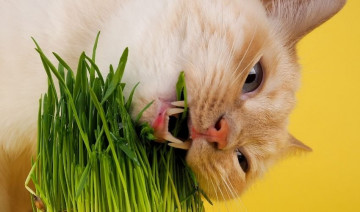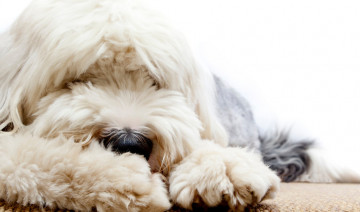10 Symptoms of Diabetes in Dogs
Diabetes can be a challenging condition to manage, especially in pets that cannot verbally communicate how they feel. Recognizing the symptoms of diabetes in...

Plants can add a relaxing touch of nature to your home, but if you have pets, you need to be cautious about which houseplants you choose. Fortunately, there are many pet-friendly houseplants that can be beautiful additions to an urban jungle without posing severe risks to your pets.
There are several ways plants can hurt pets, depending on the plant and the type of interaction the pet has with it. The most common effect is that some houseplants can be toxic to pets, and that toxicity could lead to seizures, vomiting, diarrhea, allergic reactions, or even death depending on how much of the plant the pet might eat. With some plants, just a nibble can be dangerous, or might even be a hazard to pets if the animals just brush against the foliage. Sharp spines or leaf edges could cause cuts to eyes, mouths, or delicate paws, or hard parts of the plant could cause internal injuries if ingested. If pets drink water from a plant’s dish they could get sick, or plants with strong odors might cause anxiety or other distress to pets with sensitive noses. Because of these risks, it is always best to opt for pet-friendly houseplants that offer very low risk of trouble with pets.
Many different houseplants can be considered pet-friendly and low risk for homes with animals. Some of the top choices include…
If you are interested in different plants but aren’t sure if they may be pet-friendly, consult your veterinarian for recommendations. Garden center and plant nursery staff may also be able to recommend good houseplant choices for pet owners, and it is important to research different plants to be sure they are safe.
When choosing houseplants, consider not only how they may affect pets, but also what the plants need. Some delicate plants can be very easily damaged by a curious pet, while others are more durable. Note the temperature, sunlight level, and humidity requirements of different houseplants, and choose plants that will thrive in your home’s conditions. Also be aware of the plant’s growth habits and mature size to be sure you can support it well, and take time to research its care needs. Use an appropriate pot, good quality potting soil, and proper fertilizer to nourish the plant so it will look its best and grow into a healthy, lush specimen.
Even pet-friendly houseplants can cause problems for pets and pet owners alike. Even if the plant is safe, if a pet eats large quantities of foliage there is likely to be digestive distress and stomach upset. Furthermore, even the most well-behaved pet is likely to investigate a new houseplant and may dig in the soil, bend the foliage, or accidentally tip over the pot. Cats might use a plant’s pot as a litterbox, or dogs might consider the plant a new toy. To keep houseplants safe from pets…
Pets and houseplants can easily get along in your home when you choose pet-friendly houseplants and take steps to protect the plants from unwanted attention. With care, you can enjoy both pets and plants in the same room without risks or worries.
We are constantly adding new specials to our site. Be sure to check back often!
We currently do not have any events scheduled.

Diabetes can be a challenging condition to manage, especially in pets that cannot verbally communicate how they feel. Recognizing the symptoms of diabetes in...
Comments